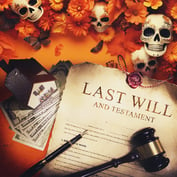What You Need to Know
- A business is often the largest asset held by business owner clients.
- Proper exit and succession planning are critical parts of the process.
- The type of business and its ownership structure are key factors to consider.
For clients who are business owners, the business is often their largest single asset or at least a very significant portion of their estate. It is critical that they consider the business in their estate planning.
Some initial questions:
- Is this a service business or a business that makes or distributes a product?
- Does the client own the business outright, or are there partners in the business?
- Are there family members in place who are prepared to take over the business?
- Does the client have an exit strategy or a business succession plan in place?
Here are some estate planning considerations for business owner clients.
Exit Strategy
Planning the exit from their business is critical for business owner clients. An exit strategy is a plan for the business owner to exit the business when the time is right, or if circumstances dictate an exit.
An exit strategy is about realizing the full value of the business through a sale to an outside party, a succession plan involving family members, key employees or partners in the business. Beyond a sale of the business as an entity, selling assets, a client or customer base, the business’ intellectual property or other aspects of the business could bring substantial value.
Having an exit strategy in place that can maximize the value realized from the business is a key estate planning strategy, adding to the value of the overall estate. This holds true whether the clients exit from the business into retirement, or if their exit is due to their death or disability.
Succession Planning
Succession planning is key for more than just estate planning reasons. Having a succession plan is one form of building an exit strategy for business owners that includes business continuity. A succession plan might entail passing the business onto family members such as children, siblings or grandchildren. It could also entail selling the business to key employees.
When selling to employees, it’s important to have an agreement in place to compensate the business owner for the full value of the sale. When the business is passed to family members, there may or may not be compensation for the business owner involved.
Buy-Sell Agreement
A buy-sell agreement can help facilitate the orderly transition of a business if the client has partners or co-owners in the business. A buy-sell agreement is often funded by a life insurance policy that kicks in if one of the owners dies, and/or a disability policy that pays out in the event of a disability that precludes them from continuing their role in the business.












 Copyright © 2024 ALM Global, LLC. All Rights Reserved.
Copyright © 2024 ALM Global, LLC. All Rights Reserved.